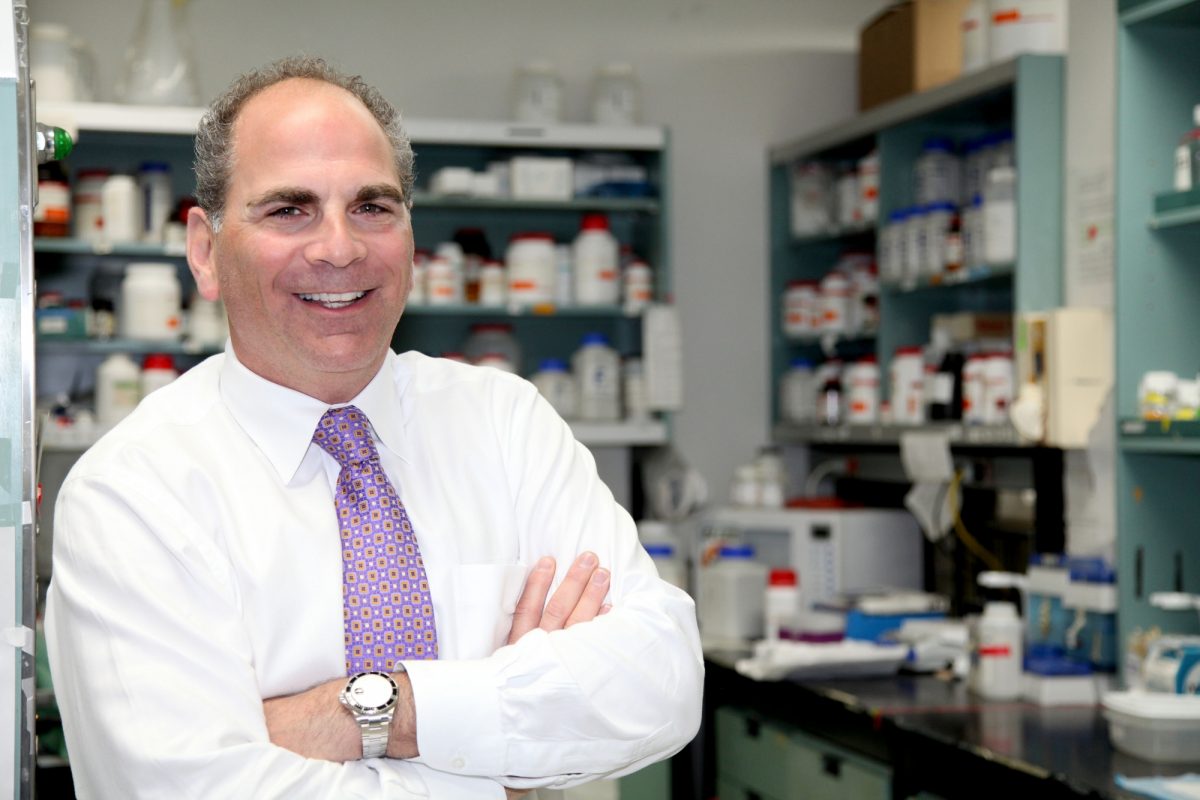
UM researcher Dr. Lorrie Kirshenbaum honoured with Order of Manitoba
Dr. Lorrie Kirshenbaum, UM professor, researcher and Canada Research Chair in Molecular Cardiology is invested into the Order of Manitoba today, July 20, 2023. Kirshenbaum is recognized for his significant contributions in fostering and training the next generation of scientists in Manitoba.
“It is both gratifying and humbling to reflect on the exceptional accomplishments of the 12 outstanding men and women being invested into the Order of Manitoba this year,” said Lt.–Gov. Neville. “They are leaders, visionaries and mentors whose efforts have enriched lives across the province, the country and around the world. Their efforts inspire commitment to community that makes Manitoba, and Manitobans, so special.”
As director of the Institute of Cardiovascular Sciences at St. Boniface Hospital, Kirshenbaum has gained international recognition for his ground-breaking research on cardiac cell death and its impact on the development of heart failure. His research has led to a better understanding of genetic and molecular processes in two of the most lethal cardiac syndromes, heart attack and chemotherapy-induced heart failure, resulting in new approaches to diagnosis and treatment now adopted worldwide.
In his complementary role as director of research development at the Rady Faculty of Health Sciences, Kirshenbaum engages his passion by developing a series of programs for supporting the career development of junior faculty and clinicians.
“I congratulate Dr. Kirshenbaum on his much-deserved induction into the Order of Manitoba,” says Mario Pinto, Vice-President (Research a& International). “His research into molecular cardiology continues to inform advances in the diagnosis and treatment of heart disease worldwide. Throughout his career, he has worked to integrate student experience with the cutting-edge research at UM labs, laying the foundation for future advancements by the next generation of clinician scientists.”
Impacts of heart disease research
Heart failure is debilitating, and people diagnosed with this form of heart disease require costly long-term care, impacting the quality-of-life of patients, their family members and caregivers. Kirshenbaum is focused on understanding the genetic mechanisms of cell death to better manage, and hopefully someday, reverse or prevent heart failure.
“Whether the heart muscle is damaged by lack of oxygen due to a heart attack or by chemotherapy treatments, the results are always the same, certain genes in the cell are triggered, leading to heart failure,” explains Kirshenbaum.
“Discovering that this is not random – that cell death is a molecular process triggered by certain genes – has allowed us to develop prototype drugs to prevent heart muscle damage at a cellular level.” These drugs are now in pre-clinical testing and are showing great promise with animal models.
Kirshenbaum’s work uncovering the genetic roots of cell death is also beginning to inform new insights in other related medical fields. While in heart disease, excessive cell death leads to heart failure, tumors result when there is not enough cell death.
“The very same genetic mechanism that is being inadvertently activated in heart disease could one day lead us to a genetic treatment for cancer,” Kirshenbaum says. “A cancer cell has lost its ability to stop dividing and continues growing until it forms a tumor. We are also studying how similar genetic processes that cause heart disease cause cancer. Kirshenbaum notes that many cancer therapies have side effects that cause heart muscle damage, and we are currently working on treatments that help cells to heal themselves, at a molecular level.”
Fostering research leadership in women’s heart health
“I’m a proud UM alumnus,” says Kirshenbaum. “After post-doctoral training at Baylor College of Medicine in Houston, Texas, I never expected my career to bring me back home to Winnipeg. Here at UM, I had the unique opportunity to develop a research program on cardiac cell death that has become internationally recognized and a training program that has inspired a whole new generation of research leadership within and outside of Manitoba.”
Kirshenbaum and a team of UM investigators have recently initiated a dedicated research program focused on cardiovascular disease in women. Despite women being just as likely as men to develop heart disease, most research programs are focused on males, overlooking differences unique to females. Currently, Manitoba is one of the few provinces without a dedicated women’s heart health program and this project seeks to fill this gap, by providing an opportunity for emerging researchers here in the province.
“The Women’s Heart Health program championed by Dr. Kirshenbaum is important in addressing the inequities in research, education and patient care of women living with heart disease in Manitoba,” said Dr. Noel Bairey-Merz, Director of the Barbara Streisand Women’s Heart Center at Cedars Saini in Los Angeles. “The program will transform the landscape and quality of life of women living with heart disease in the province and I applaud Dr. Kirshenbaum for his leadership and look forward to working with him as one of our international partners.”
Research at the University of Manitoba is partially supported by funding from the Government of Canada Research Support Fund.






